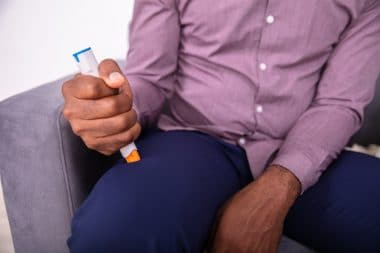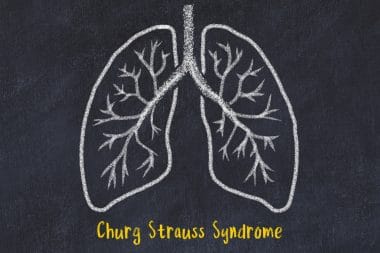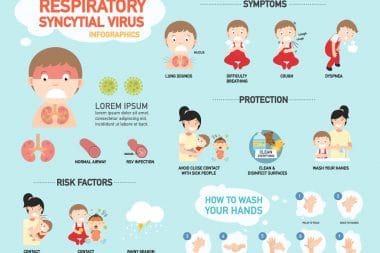Before sinus surgery is performed an ear, nose, and throat specialist will prescribe medication and procedures for treating acute sinusitis. If sinus infections are so recurrent and non-responsive to antibiotics, decongestants, and nasal steroid sprays then surgery may be the only option to enlarge sinus openings to drain the infections.
Most sinus surgeries are non-invasive, have minimal discomfort and a brief convalescence is required. Generally there are few complications.
You clinical history must be founded before surgery is implemented. A total diagnostic workup is then used to ascertain the original cause of acute sinusitis. Most acute or chronic sinusitis problems are discovered in the anterior entomic area. This is the area the maxillary and frontal sinuses connect wit the nose. Problems will be diagnosed with a CT scan, nasal physiology, smell and blood tests.
Functional Endoscopic Sinus Surgery (FES)
Established in the 1950s functional endoscopic sinus surgery (FESS) opens the natural passageways to the sinuses. An improved drainage system is achieved and the diseased sinus generally returns to normal.
To perform FESS an endoscope or a optic tube that is wire-thin fiber is inserted into the nostrils for a visual inspection of the openings. Using microscopes plus surgical tools, obstructive and abnormal tissues are removed. This surgical technique is performed completely through the nostrils to prevent facial scaring. Only mild discomfit is felt after the surgery and a bit of swelling. Nasal irrigation to prevent crusting is prescribed.
Image Guided Surgery
If the sinuses needing surgery are adjacent to the brain, eyes and major arteries technology-image directed endoscopic surgery is performed. Image surgery is suggested for debilitating forms of chronic sinusitis or in cases where earlier sinus surgery changed the anatomical landmarks. If you have unusual sinus anatomy you will need image guided surgery.
Image guided surgery is a three-dimensional mapping system that uses computer tomography or CT scans and real time information guiding the surgical instruments through difficult sinus passages.
Caldwell Luc Operation
The Caldwell Luc procedure relieves chronic sinusitis by improving drainage of the maxillary sinus that is located beneath the eye socket. This procedure involves entering the sinus through the top jaw preferably near the second molar tooth. An opting is made to attach the maxillary sinus and the nose to improve drainage. This surgery is also executed when there is a malignancy in the sinus cavity.
Most sinus surgeries are outpatient surgeries performed in a hospital or a surgical center situation. Quality care is provided without the inconvenience and expense of an overnight stay. You do have the services of an anesthesiologist who will monitor you throughout the surgery.
You may want to have someone stay with you overnight to make sure there are no compilations and to help with saline irrigation.
Patients should not take aspirin or any products that contain aspirin within at least ten days before surgery. Do not take no steroidal anti-inflammatory medications at least seven days before surgery. These types of medicines can cause abnormal bleeding.
Post Surgery Instructions
Upon returning home from the surgical facility you do need to get bed rest and elevate your head on two or three pillows. This will help prevent edema and swelling from the surgery. You may use the restroom but make sure you have help. Avoid straining with bowel movements since this can cause surgical site bleeding. If you have constipation due to the anesthesia, use gentle laxatives.
You may find that there is swelling of the upper lip, cheeks, nose or around the eyes. This is norm and will go away with time. You need to use an ice-pack on the face bridge of your nose and eyes as much as you can tolerate. This will help with postoperative edema and pain. You may find that the doctor prescribes a mild pain medication and this should be taken only as prescribed.
Moderate bleeding is normal and does decrease with time. The gauze dressing will collect the blood and should be changed often. While recovering do not take aspirin or non steroidal anti-inflammatory such a ibuprofen. These ay increase bleeding and slow clotting at the site.
Eat a light and soft diet and avoid hot liquids and alcohol for several days. Eat slowly to prevent postoperative vomiting and nausea. If you vomit after surgery and it persists, contact the surgeon. You may need to be prescribed medications to reduce vomiting.
You will most definitely be prescribed antibiotics after surgery and a narcotic pain medication will be prescribed. Do not drive and have someone with you if you are given narcotics after surgery. Steroids may also be prescribed. Take all medications as ordered and do not discontinue medications prematurely. Do not worry about steroids, these medications are very instrumental in proper healing.
If the sinus surgery was not invasive or major recovery should take only a few days. You may find that after five days you feel back to normal. Do refrain from any activities that increase your blood pressures until you have been given the green light by your doctor.
Packs or nasal packing may be placed in your nose to control bleeding. You may have to return to the doctor”s office to have these removed. Do have someone drive you to this appointment in case of complications. Eat a light meal before your appointment and do not take excessive pain medications. Keep all your postsurgical appointments. The surgeon will need to use the endoscope to ensure that everything is good. Debridement and clean up will also be necessary after surgery. Do be aware not to blow your nose or sneeze, these will cause bleeding. Sneeze through an open mouth if you must.
After surgery, you will have to use nasal irrigation. You can utilize a saline nasal spray numerous times a day to prevent coatings starting in your nose. Discontinue irrigation when your surgeon lets you know that your airways are cured.
After sinus surgery only go back to work or regular duties when the doctor gives you the okay. Rest for several days and do avoid excessive talking, hard chewing or strenuous activities. Try not to smile so much, lift heavy objects, bump your nose, or rest your eye glasses on the bridge of our nose.
Avoid all alcohol and tobacco products and uses; these vices will prolong swelling and healing. You may find that dust; gas, perfumes and other vapors irritate the nose and cause infections. Be care and take your full regimen of antibiotics to make sure infections are at a minimum.
Try and avoid long travel for up to three weeks after surgery. This is to ensure that there are no complications, internal bleeding or drainage at the surgery site.









